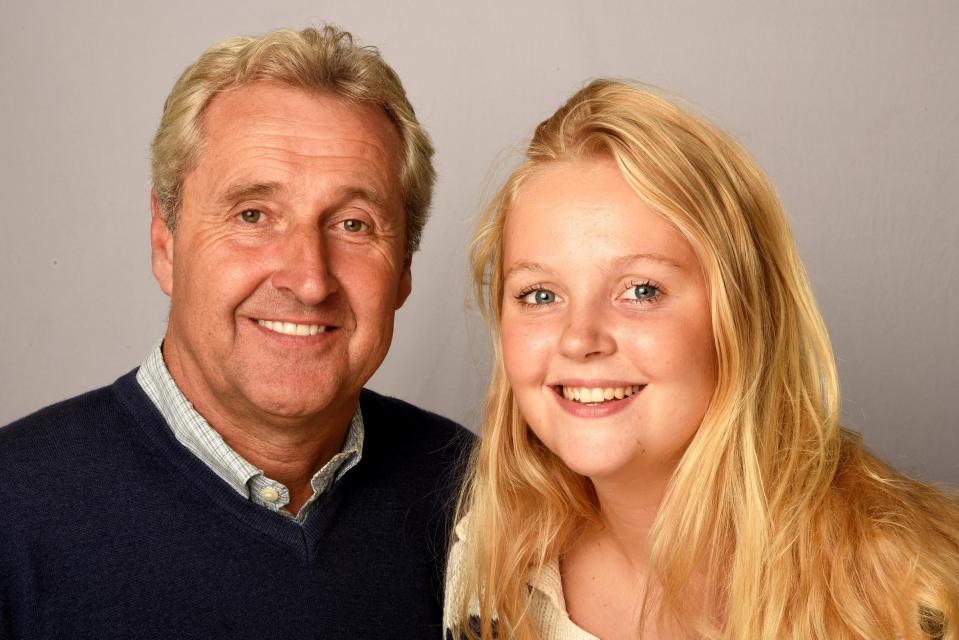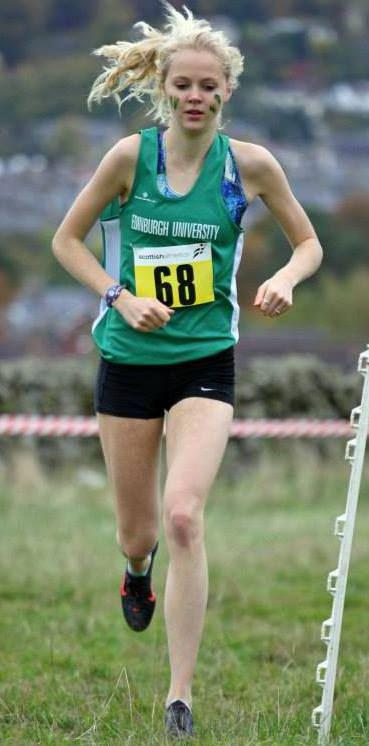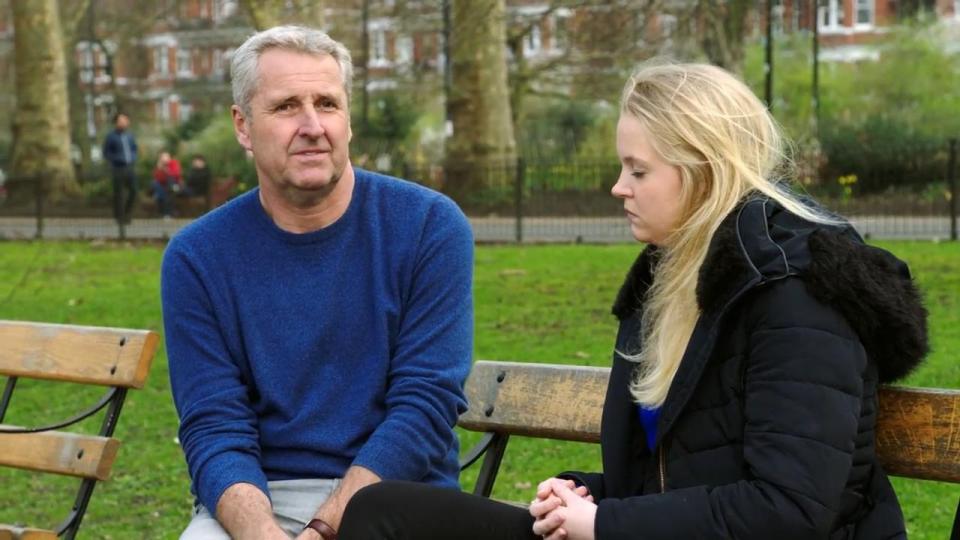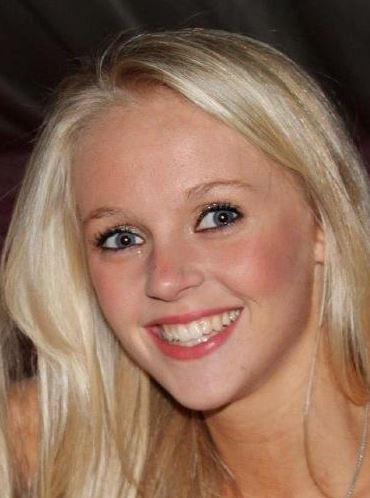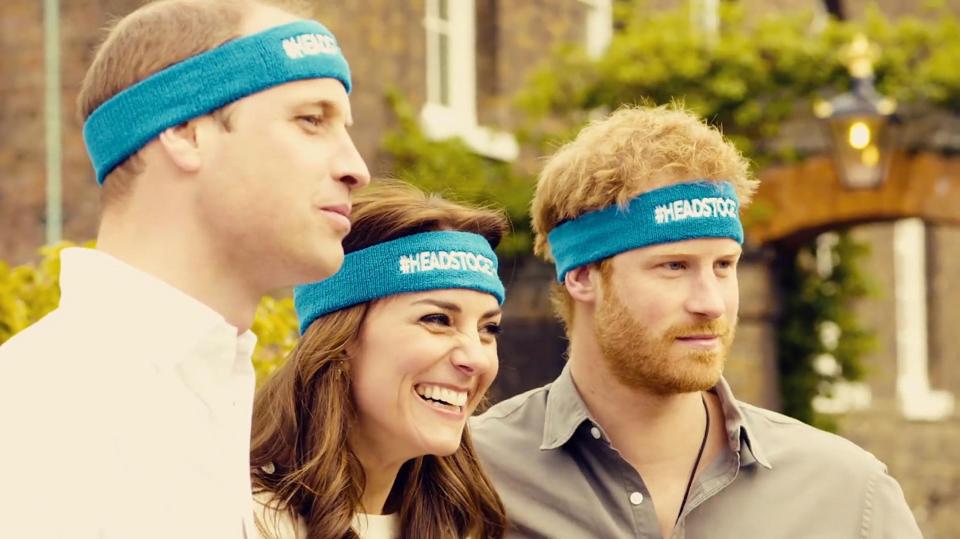Mark Austin and his family open up about daughter Maddy’s anorexia battle and the heartbreaking fears she would ‘die in the night’
Mark and Maddy, who weighed just five and a half stone at her lowest, investigate NHS care in the Channel 4 documentary Wasting Away: The Truth About Anorexia

MARK Austin’s wife Catherine has revealed how she slept in her anorexic daughter’s room every night because she feared she would die in the night.
Maddy, who weighed just five and half stone at her lowest, has also spoken about her illness in a documentary she has made with her newsreader dad.
In Wasting Away: The Truth About Anorexia, she broke down in tears as her doctor mum revealed how the eating disorder tore the family apart.
Catherine said: “She couldn’t stand up, she was cold all the time and her heartbeat was really slow. She had blue lips.
“That’s why I slept in her bedroom because I thought she was going to have a heart attack and die in the night. It was so horrible. She was just so unwell.”
“We are a strong family and it almost destroyed us.”
Mark, who has previously revealed he told his daughter to “Go ahead and starve yourself”, admitted he handled the situation badly.
He said: “I’ve covered wars and atrocities in my career as a television journalist but I have usually been able to shut out the horror and return to a normal life.
“But when anorexia came crashing headlong into my own family, it was a very different story.”
Maddy first showed signs of anorexia in November 2012, around her 18th birthday, when she was competing at a national level in the 800 metres as well as studying.
She said: “I didn’t think I was worth living, I didn’t think I was worth saving, I didn’t think I was worth making better.
“It was quite a busy time in my life. I was running in Olympic trials, I was doing my A’levels and trying to get to a good university and it all got too much and I just thought I wasn’t good enough.
“I didn’t think I could say to anyone ‘I’m not OK here, there’s something not OK and I suppose I didn’t have another way to show that."
Mark said that may people commented on how thin Maddy had become at her 18th birthday but he “didn’t think anything of it.”
“I like to think I was a good dad but in this I messed up badly,” he admitted.
“I didn’t realise it was a mental illness early enough. I thought it was a fad, a lifestyle thing. I thought it was a teenage girl being stupid and crass and wanting to get thinner.”
By December 2012, Maddy had been diagnosed with anorexia but apart from the “occasional counselling and a meal plan she barely stuck to", Mark said little was done to help.
Most Read in Living
Maddy recalled: “I was controlling all my food, obsessively counting calories and hiding food to make myself feel better, in twisted way. That was the way I felt valid.
“I became very shy and quiet and I isolated myself with everyone because it was my way of dealing with what was going on inside
“I genuinely thought my family and friends would be better off without me.”
Despite having a doctor and a “pushy journalist” in the family, the Austins struggled to get help for Maddy’s disorder through the NHS.
She eventually got help from a local clinic which "saved her life", but Mark soon found they were the lucky ones.
With over 1.2 million people suffering from eating disorders in the UK, Mark revealed that there is a16 month waiting list for treatment in some parts of country and only 202 NHS beds for children with eating disorders in the whole of the country.
Catherine revealed: “Even as a doctor I had no idea how to deal with it. I just wanted to make her better and it seemed like there was nothing I could do and I was losing her.
“No one seemed to want to take responsibility for what was going on and Maddy was getting iller and iller, and losing weight and getting more and more distant and more angry, and we were left at home with her watching her wasting away almost to the point of death before anyone would do anything.”
Mark recalled his own struggles to deal with it as his home "became a battleground."
He said: “I went to work and I didn’t want her to be my responsibility any more, and that’s a terrible thing to say.”
But he said their relationship broke down so badly that they had screaming fights every time they saw each other.
"I wasn't talking to Madeleine, I was talking to this thing called anorexia and that’s a very difficult thing.”
As a result of their experience, Mark and Maddy decided to make the documentary to highlight the “lottery” of care faced by sufferers.
In the Channel 4 show brave Maddy, now 23 and healthy, meets fellow sufferers and their families including Nottingham mum Rachel who has to travel to Edinburgh up to six times a week to see her daughter in a specialist unit, because there was no bed for her locally.
Rachel said: “It’s not the illness that has been traumatic but the separation,. I hate leaving her and sometimes I cry all the way through to the airport and sometimes through security.”
She revealed her daughter often rings up in a distressed state and “not being able to nip up the road and put my arms around her is horrific.”
They also spoke to the family of Lydia Stafford, an anorexic who took her own life after being discharged from care in Norfolk.
And Maddy confronted Health Secretary Jeremy Hunt about Lydia’s case, saying: “Surely should this should be a National Health Service not a national lottery.”
Jeremy Hunt replied: “I think we are making progress. I think we recognise that the service the NHS has been offering is well below what anyone would want for their own children.
“I’ve got two younger daughters and I’ve met a number of people who have been through a total nightmare while wrestling with this.”
“We have to set up brand new eating disorder services that have never existed before and out aim is to make the promise that by 2021 everyone will be seen within four weeks, the urgent cases in a week and emergencies in 23 hours.”
When Mark revealed the average wait was 30 weeks, he replied: “It was never a promise we could fix this overnight.
“It’s not OK, and that’s what we are committing to changing but it does take time. If there was a quick fix we would grab it.”
“I’d be lying to you if I didn’t say that it’s a big mountain to climb to get there.”
The father and daughter team also met Prince William, who has been campaigning for more openness on mental health issues, at Kensington Palace.
He told them: “We need to normalise the conversation about mental health. The fact you are speaking out is very brave but it should be normal. We do need to talk about it and not be ashamed and hide it in the dark, because that’s where it festers and leads to horrible outcomes.
“For you Mark, as a father, not knowing what to do, I can relate to that. You are stuck with the people you love the most in life and you probably feel very helpless.
“I hope George and Charlotte can grow up in a world where we can talk about mental illness.”
Wasting Away: The Truth About Anorexia is on Channel 4 on Thursday August 24 at 10pm


